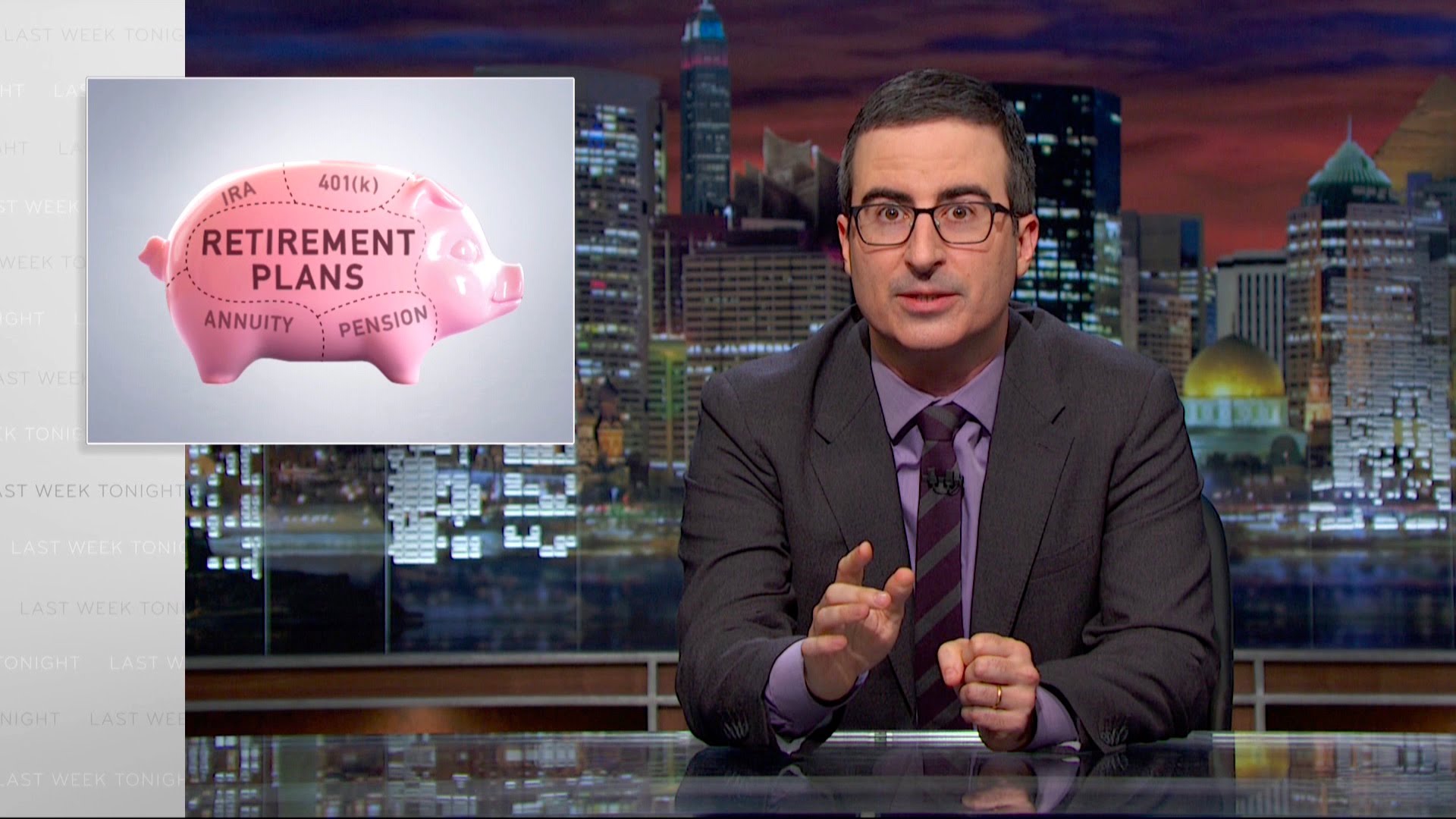
You might not know John Oliver. He’s British, first of all, and his comedy program “Last Week Tonight” airs on late-night cable.
The segments on the show are long (22 minutes long!), very wonky and tend to tackle subjects most of us actively avoid — international affairs, payday lending, the downside of the U.S. energy boom, infrastructure spending.
Seriously, if we wanted “60 Minutes,” we’d watch it, right? But Oliver is a huge success, in large part because he’s funny, a bit rough around the edges (hard to imagine the late Morley Safer using the f-word so liberally, at least not on air) and because when he digs into a topic, he really digs deep.
You find yourself laughing at propositions that are fundamentally not funny, like how big sports stadiums bankrupt taxpayers and, recently, how utterly dangerous it is to ignore high fees in your retirement investments. He’s a truth-teller, and people can’t get seem to get enough of it.
Oliver spent nearly 22 minutes recently breaking down the very real issue of financial advisors, fees and fiduciary responsibility, a topic close to our mission at Rebalance. Views on the segment on Oliver’s YouTube channel so far are over 3.5 million!
“Compound interest works both ways. Meaning, while your money adds up, your fees can really add up, too,” Oliver explains during the segment. Effectively, he notes, two-thirds of your investment gains are taken by financial advisors — a fact that until recently they did not have any obligation to explain to you, the actual retirement saver.
“Two-thirds of what you would have had is gone! So think of fees like termites. They’re tiny. They’re barely noticeable, and they can eat away your (…) future.” I left out an expletive there, which HBO bleeped, too. That’s just John Oliver for you.
Oliver goes on to explain how his own employer was led down the primrose path by an advisor at a major brokerage, putting them in a plan stuffed with high fees and then offering a series of increasingly unbelievable reasons why the fees weren’t going to be so bad — arguments that could be objectively disproved with math.
He also explains the recent Department of Labor decision to require that all financial advisors act as fiduciaries, a concept right up Oliver’s alley, frankly. It’s dense, hard to explain and most people wouldn’t care to spend 22 minutes thinking about it. Yet he does it brilliantly, with jokes.
Oliver’s audience is largely millennials, exactly the people who would most benefit by lowering their fees immediately, avoiding conflicted advisors and using low-cost index funds instead of actively managed mutual funds or, worse, attempting to pick stocks.
Better advice
But everybody saving for retirement needs better advice and must take these issues seriously. A typical 45-year-old has two decades of saving ahead, yet fees never sleep. Even a person near retirement would benefit from lower fees on an income portfolio.
The only wrong move, really, is to assume that someone else will make the right choices for you. That’s what empowers conflicted financial advisors to sell you risky, high-cost products in the first place.
The new fiduciary rule is a big move in the right direction, but it takes initiative and personal involvement to get on the path toward retiring with more.





